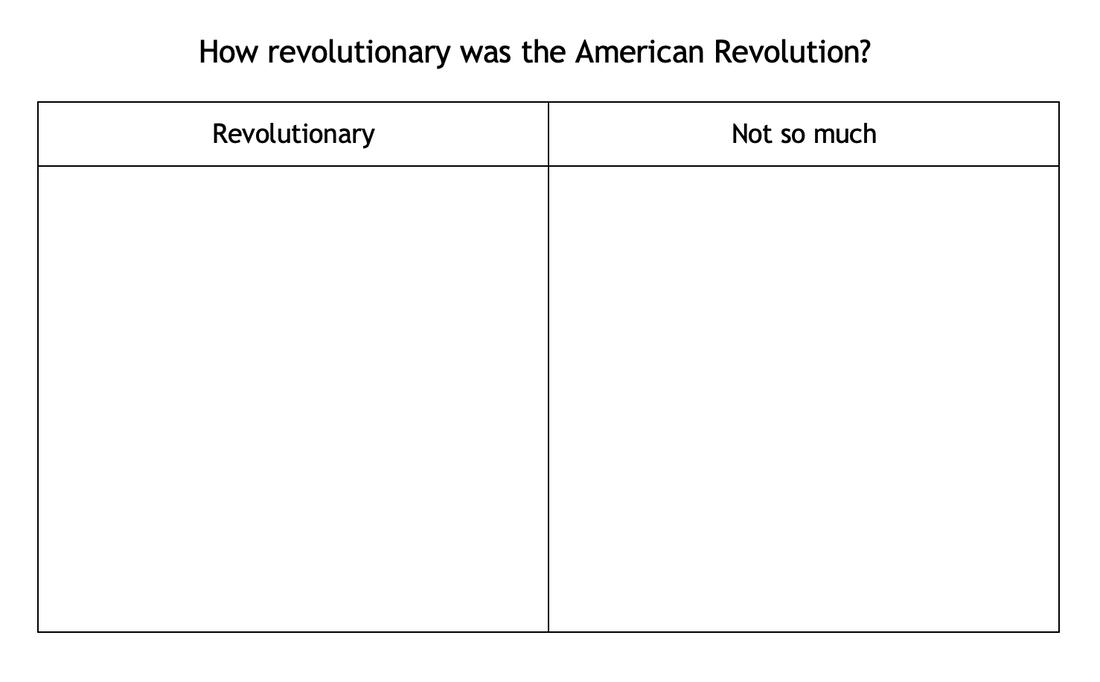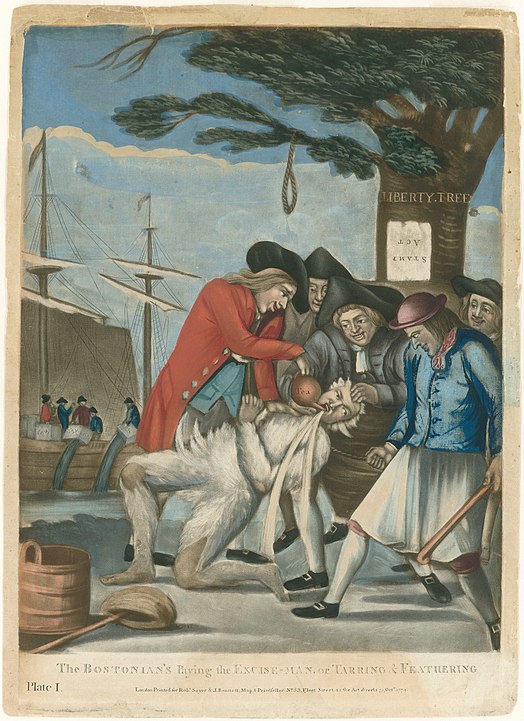Lesson 7 - How Revolutionary was the American Revolution?
At last the British backed down. They removed all taxes except one on tea, which they kept to show that they had the right to tax the American colonists. The Americans then began to smuggle in tea for which the tax had not been paid.
The Boston Tea Party
Most British tea came from the East India Company. The company was in deep financial trouble and the government decided to help it by cutting the tax on tea to America. This made the company's tea cheaper than the smuggled tea. But many merchants would have lost money if smuggling ended.
At last the British backed down. They removed all taxes except one on tea, which they kept to show that they had the right to tax the American colonists. The Americans then began to smuggle in tea for which the tax had not been paid.
The Boston Tea Party
Most British tea came from the East India Company. The company was in deep financial trouble and the government decided to help it by cutting the tax on tea to America. This made the company's tea cheaper than the smuggled tea. But many merchants would have lost money if smuggling ended.
|
In Boston people attended a protest meeting on 16 December 1773. They decided to go aboard the ships and dump the tea in the harbour. A group of men disguised themselves as native American Indians. They climbed onto the three tea ships in the harbour and emptied the tea into the sea. Three hundred and forty-two tea chests were destroyed. It was said at the time that the pile of dumped tea was so high in the harbour that some of it was falling back onto the ships. Later some people went so far as to give up eating fish caught in Boston harbour 'because they had drunk of the East India Tea' .
|
|
|
The 'tarr and feathering' of John Malcolm 1774
(A popular source with examiners) Customs Commissioner John Malcolm was tarred and feathered on two occasions. Firstly, in November 1773 he was targeted by sailors in Portsmouth, New Hampshire before undergoing a similar, albeit arguably more violent, ordeal in Boston in January 1774. Malcolm was stripped, whipped, beaten, tarred, and feathered for several hours. He was then taken to the Liberty Tree and forced to drink tea until he vomited. The Bostonians Paying the Excise-Man, 1774 British print by Philip Dawe The Intolerable Acts
|
King George III was outraged when he heard about the 'Boston Tea Party'. Parliament passed Acts which closed the port and reduced the power of the Massachusetts Assembly. The Americans called these measures 'the Intolerable Acts'. Together the Colonies decided that they must make a united stand against King George and the British parliament. In September 1774 each of the thirteen colonies sent representatives to a meeting in Philadelphia. The meeting called itself the 'Continental Congress'. The Congress decided to boycott British goods until the Intolerable Acts were removed. But at this stage they were still loyal to King George. They just wanted him to let them decide on their own taxes. They were not yet looking for independence from Britain... but then things started to get out of hand.
|
The first shots are fired
The British appointed General Gage to restore order in Boston. He learned that some Bostonians had a large store of arms in Concord, near Boston, and he planned to seize it. On the night of 18 April 1775, British troops set out for Concord. But the rebels learned of their plans and sent messengers to warn the surrounding countryside. The most famous messenger was Paul Revere who we have already come across. At Lexington, on the road to Concord, rebels clashed with British troops. Eight Americans were killed and ten were wounded. Later that day a second battle took place in Concord. The British were forced to retreat to Boston. The Americans now placed Boston under siege. The War of Independence had begun. |
|
|
Activity 1 - The Boston Tea Party
Activity 2 - How revolutionary was the revolution? In political science, a revolution (Latin: revolutio, "a turn around") is a fundamental change in political power and political organisation, which occurs relatively quickly when the population revolt against their oppression (political, social, economic) by the incumbent government. To some extent, the American revolution clearly was a revolt that resulted in a change in political power and organisation. The American Patriots overthrew the government of the British and installed a new system of government based upon significantly different principles. (See the Declaration of Independence). But how 'fundamental' was the change? Was post-revolutionary USA significantly different from pre-revolutionary colonial America? Watch the video 'Tea Taxes and the American Revolution' (one of John Green's best) and answer the debatable question: how revolutionary was the American Revolution? Draw up and complete a table like this: |
|


